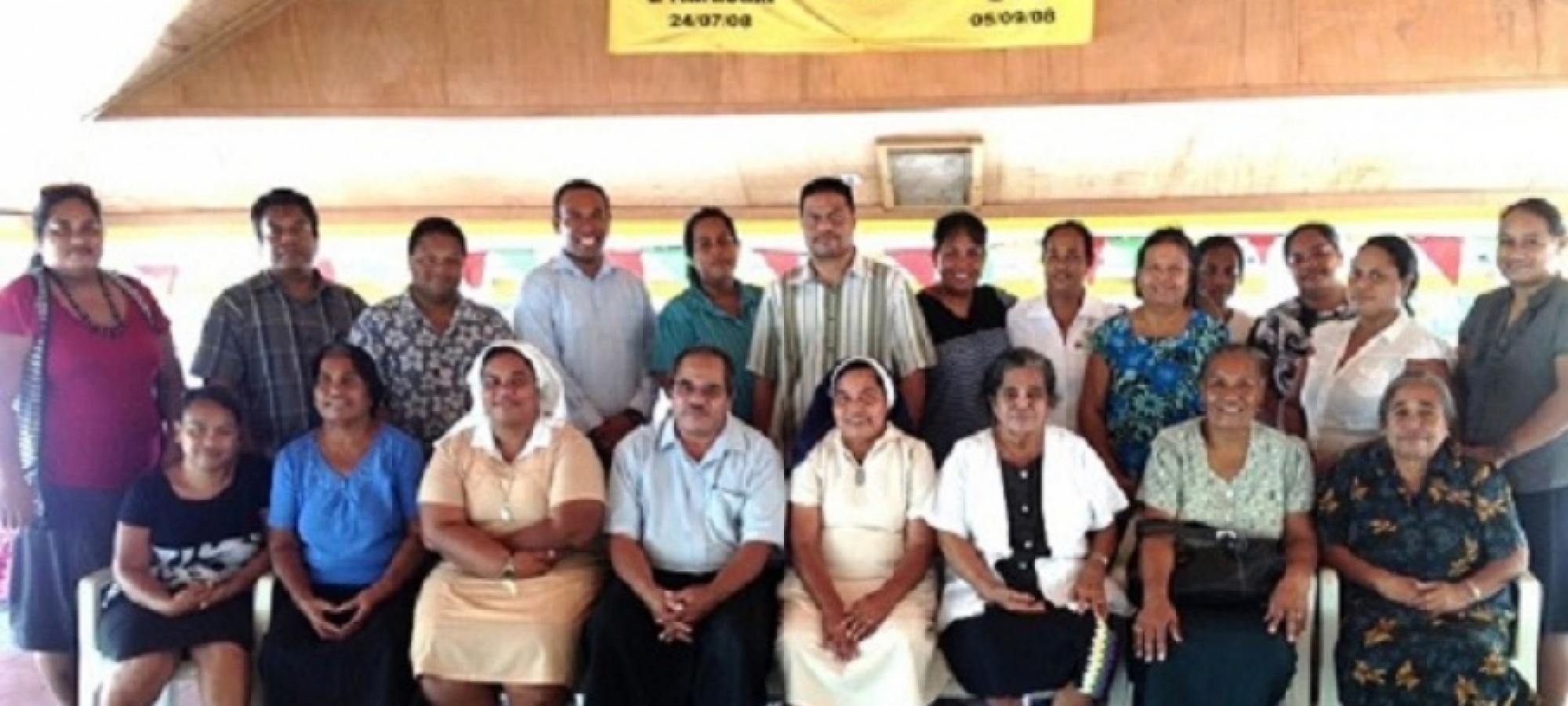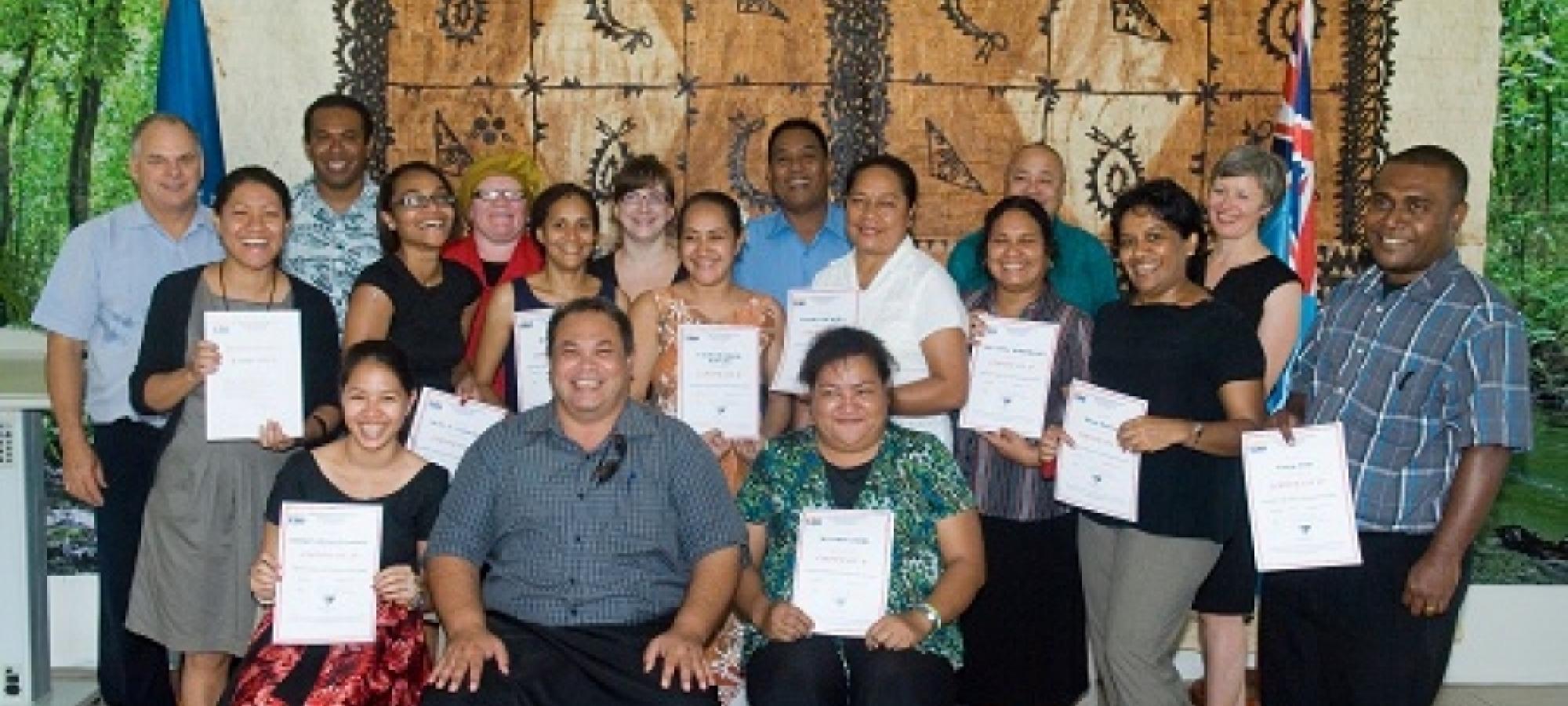SPC prepares Kiribati advocates for consultations on violence against women legislation

Wednesday 14 March 2013, Secretariat of the Pacific Community (SPC), Suva, Fiji –
The Kiribati Ministry of Internal and Social Affairs (MISA) in partnership with the Secretariat of the Pacific Community Regional Rights Resource Team (SPC RRRT) facilitated a workshop for community representatives from 11 to 13 March in Tarawa to advance their knowledge and skills of advocating for improved legislation to address violence against women.
Speaking at the opening of the workshop, the Honourable Attorney General of Kiribati, Titabu Tabane, said he was alarmed at the high rate of violence against women and children in Kiribati reported in the 2008 Kiribati family health and safety study.
'The study found that 68% of women between 15 and 49 years of age have experienced physical and/or sexual abuse and most of the violence occurs at home or in the family. This translates to two out of every five women in Kiribati suffering physical and/or sexual abuse or violence. This is one of the highest, if not the highest in the Pacific,' the Hon. Tabane said.
He reaffirmed that violence against women in Kiribati must be addressed appropriately, and legislative reform is a key step in protecting women and children from all forms of abuse, violence, discrimination and exploitation.
Kiribati has prepared draft legislation entitled KIribati Te Rau N Te Mweenga Bill 2012, or the Family Peace Bill. The bill is expected to go before Kiribati's parliament this year. In preparation, national consultations to create awareness about the bill are required. MISA, with support from SPC RRRT, is undertaking to train community representatives for community consultations.
Speaking at the workshop, Gina Houng Lee, RRRT Senior Trainer, said, 'It's great to see Kiribati come this far. In 2011, the Government requested SPC RRRT to draft the violence against women legislation and, with support from AusAID and the Sexual and Gender based Violence (SGBV) Reference Group, the Family Peace Bill was drafted in 2012. This workshop focuses on educating community advocates on key provisions of the draft bill and supporting the development of practical strategies for community awareness about the bill.'
The Family Peace Bill provides instruction on measures to prevent and respond to domestic violence and on how government and its agencies, as well as service providers, can support victims and their dependents. It also includes several measures that are critical to holding offenders accountable.
The training is part of the SPC RRRT Project: Support to the Government of Kiribati to implement the national approach to support the elimination of sexual and gender-based violence in Kiribati: Policy and National Plan 2011–2012, Preparatory Phase, funded by UN Women. It is a result of a yet earlier project – Changing laws: protecting women and girls – undertaken by RRRT from 2009–2012 under the UN Trust Fund on Prevention of Violence Against Women grant. The project involved developing and building a task force of advocates and providing a set of drafting instructions on VAW legislation that is compliant with global human rights standards.
For more information, please contact Jilda Shem, SPC RRRT Communications Officer on +679 330 5994 or email [email protected]













